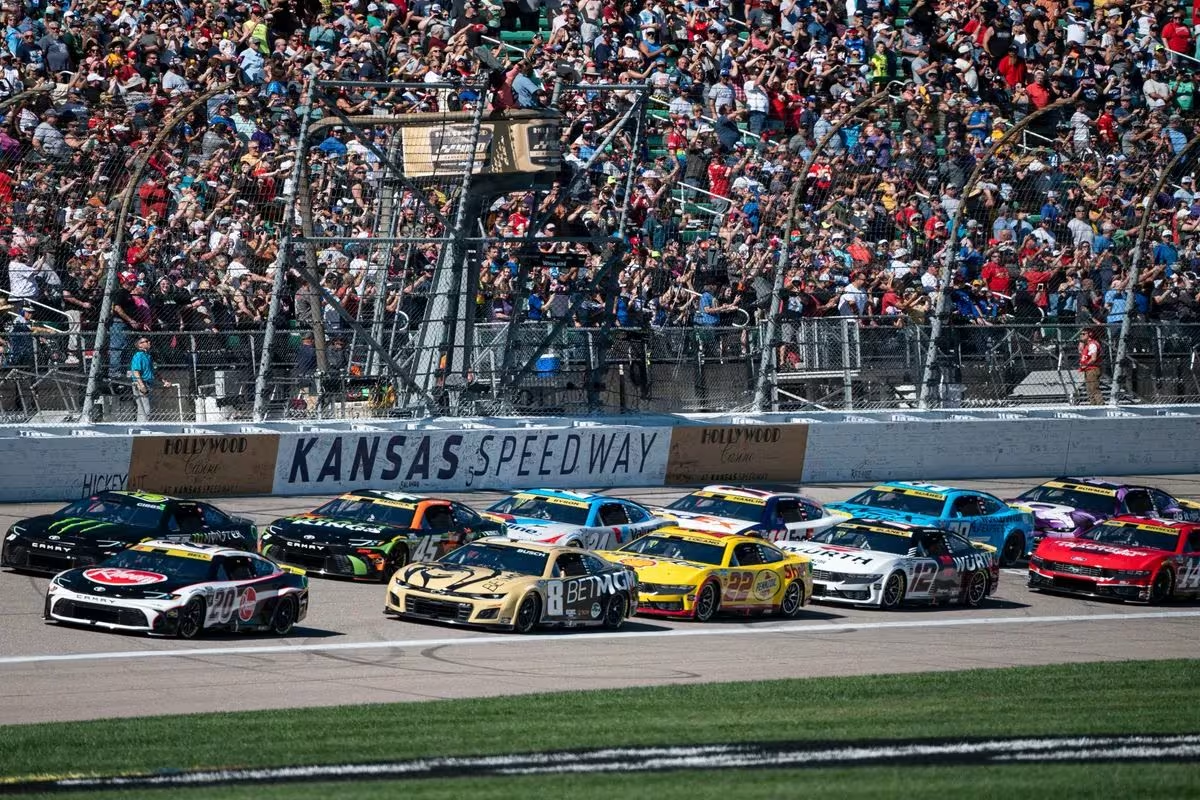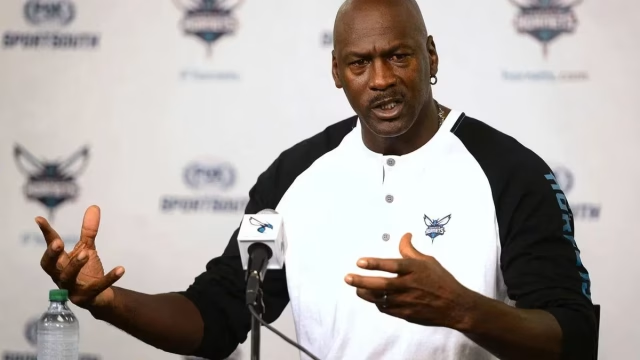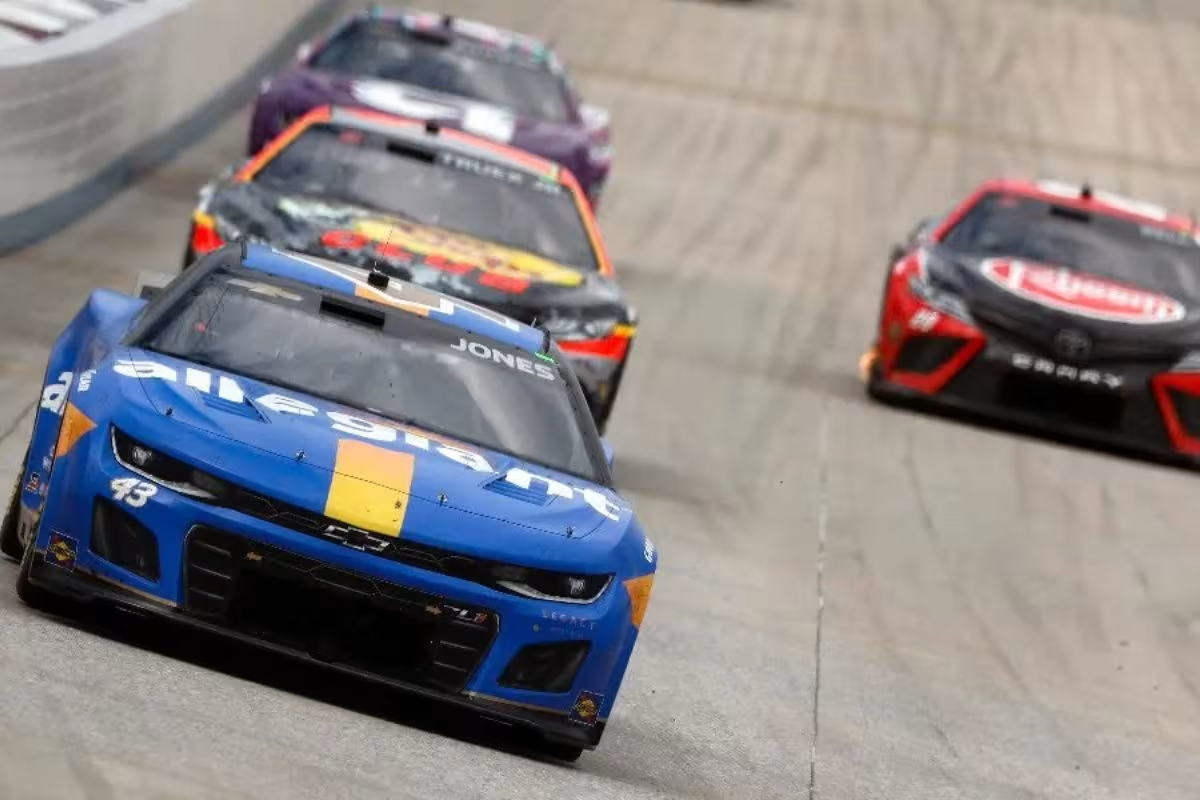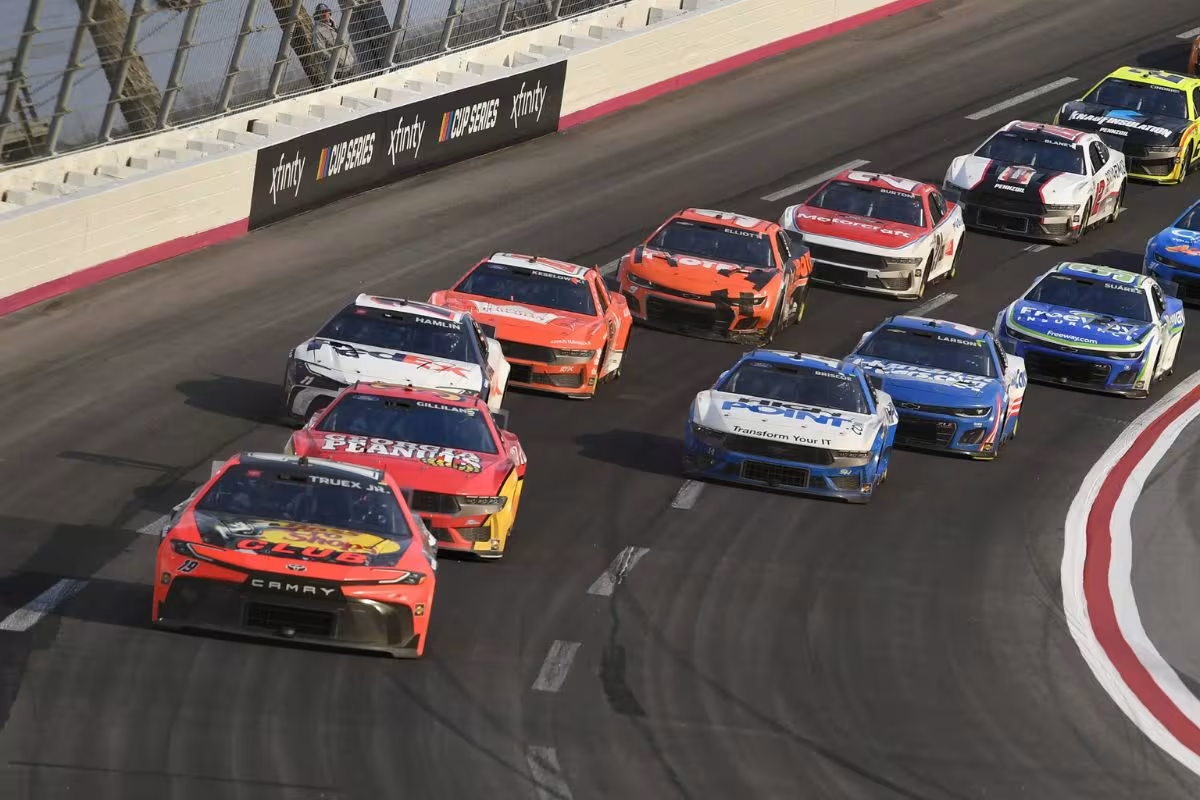Michael Jordan’s Lawyer Claims NASCAR Is Corrupt: Michael Jordan’s lawyer, Jeffrey Kessler, has raised serious concerns about corruption in NASCAR, showing controlling practices and unfair charter negotiations that may exploit teams. This situation threatens competition and ethical governance, especially as NASCAR’s influence grows. To address these issues, reforms could include making charter negotiations more transparent, showing stronger regulations to prevent controlling behavior, creating financial support programs for struggling teams, and establishing an independent oversight body.
Key Highlights
- Michael Jordan’s lawyer, Jeffrey Kessler, alleges that NASCAR’s practices exploit teams through pressuring charter negotiations and limited options for racing rights.
- The anti-trust lawsuit highlights NASCAR’s controlling control, reducing competitive teams and impacting their financial viability.
- Teams reportedly face economic disparities, with NASCAR’s profits favoring a select few, raising questions about fair compensation.
- Kessler emphasizes the urgent need for systemic reform to ensure equitable treatment and autonomy for racing teams.
- NASCAR’s expanding influence and financial success further complicate the situation, potentially leading to ongoing exploitation of teams in the sport.
The Anti-Trust Lawsuit and NASCAR’s Monopoly
Is NASCAR truly operating as a controlling group within the domain of motorsport? This question has gained importance following the anti-trust lawsuit filed by 23XI Racing and Front Row Motorsports. The allegations suggest that NASCAR’s practices may stifle competition and adversely affect the operational change of teams.
At the heart of this legal confrontation is the claim that NASCAR has used its significant market power to shape charter negotiations in a manner that may be viewed as anti-competitive.
“This is an anti-trust case. An anti-trust case is a case that argues that the rules of competition are being violated. We have anti-trust laws that regulate competition. What we are arguing here is that NASCAR is a monopoly.”-(kessler)
The delayed negotiations over charters have raised concerns among team owners, who argue that NASCAR’s firm stance has resulted in a lack of options for securing and negotiating their racing rights. These issues are contained in the claims made by Jeffrey Kessler, the lawyer representing the claim teams, that NASCAR’s current practices could lead to controlling outcomes to the sport’s integrity and competitive balance.
While NASCAR has yet to publicly respond to the allegations, the lawsuit shows a growing unease within the racing community regarding the governance and operational frameworks that NASCAR imposes.
The consequence of this case extend beyond the immediate legal consequences, potentially redefining the landscape of stock car racing and the extent of NASCAR’s control.

NASCAR’s Total Control over Stock Car Racing
NASCAR wields considerable control over the landscape of stock car racing, raising critical concerns about its impact on competition and team viability. The organization’s controlled practices, as articulated in the ongoing anti-trust lawsuit, shows a structure that stop teams from participating in other racing series and limits their access to big intellectual property.
Significantly, the Next Gen car‘s intellectual rights remain tightly sealed, encouraging an environment where teams are compelled to acquiesce to NASCAR‘s demands without adequate support or compensation.
“There were 15 teams in 2016, nine of them are already out of business and had to be replaced because they can’t afford to put in ten and millions of dollars a year into teams and pay the drivers, and all the money goes to the France family.”-(kessler)
The consequences of this control are found since 2016, the number of competitive teams has decreased from 15 to a concerning fraction, with many unable to sustain the exorbitant financial burdens associated with participation. The accusation that the majority of the profits flow to the France family, rather than being invested again into the sport or its teams, raises questions about the sustainability of stock car racing as a viable enterprise.
Teams are therefore caught in a unstable position, where they must navigate an increasingly hostile economic landscape dictated by NASCAR’s authority.
Kessler’s Claims of NASCAR Bullying Teams
The allegations made by Jeffrey Kessler highlight a troubling dynamic within the NASCAR framework, where teams reportedly face coercive pressures to conform to the governing body’s charter agreements. Kessler’s assertions suggest that NASCAR has been leveraging its authority to compel teams into signing agreements that may not serve their best interests, particularly before the playoffs. This assertion raises critical questions about the equitable distribution of economic benefits within the sport.
“They’re gonna file this lawsuit so that NASCAR can come into the 21st century and give these teams and drivers a fair economic chance to match the fact that NASCAR fans do not go to see these races to watch Jim France they got to watch these races for these teams and these drivers.”-(kessler)
Kessler’s claims indicate that teams are not merely participants but contributors to the NASCAR spectacle. He points out that:
- Coercive Environment: Teams are pressured into agreements that restrict their economic opportunities.
- Economic Disparity: NASCAR’s financial success appears to be disproportionally enjoyed by the governing body, rather than shared with the teams and drivers who drive fan engagement.
- Lack of Autonomy: The structure imposed by NASCAR constrains teams’ ability to negotiate more favorable terms, leaving them feeling exploited.
These points makes a larger systemic issue within NASCAR, the governing body’s influence may lead to the distribution of resources.
Kessler’s remarks shows the urgency for reform, advocating for a model that allows teams and drivers to receive fair compensation reflective of their contributions to the sport.
As NASCAR stands at a crossroads, the need for transparency and fairness within its operational framework becomes increasingly apparent, calling into question the legitimacy of the current contractual practices.
NASCAR’s Expanding Influence and Unchecked Power
Recent developments indicate that NASCAR’s influence within the domain of motorsport is not only enduring but expanding, raising concerns about the potential for unchecked power. The recent $7.7 billion television rights deal for Cup Series racing exemplifies NASCAR’s financial strength, claims of its decline. This substantial investment shows the sport’s continued appeal, yet it also raises questions about how this wealth is distributed among teams, particularly smaller or legacy organizations that may feel excluded.
As NASCAR ventures into international markets, such as Mexico, it creates opportunities for growth, but the consequences for existing teams are less clear. Jeffrey Kessler’s assertions regarding NASCAR’s controlling behaviors shows an concerning reality for many teams. He argues that NASCAR’s economic agreements effectively coerce teams into accepting unfavorable terms, as the alternative—finding independent venues—is with practical limitations. This dynamic suggests a merging of power that limits the competitive landscape and threatens the survival of smaller teams.
“Either you accept this really bad deal which gives all the economics to us and you just deal with it or to find your own racetracks, right? Where are you going to go compete? How are you going to exist? That monopoly power, that’s what the anti-trust laws are designed to prohibit and prevent, that kind of abuse.”-(kessler)
The contrast of NASCAR’s aggressive expansion against the backdrop of its controlling practices raises critical ethical and legal questions. With anti-trust laws designed to prevent such exploitation, investors must critically assess whether NASCAR’s current course adjusts with fair competition principles.
As the sport evolves, the balance between profitability and equitable treatment of teams will be big nascar future depends on making money and being fair to all teams and drivers. It’s important for fans and regulators to pay close attention to how things are run to make sure everyone gets a fair chance.
News in Brief: Michael Jordan’s Lawyer Claims NASCAR Is Corrupt
ALSO READ: Michael Jordan’s 1 Million Dollar Gesture to Help People in Need


